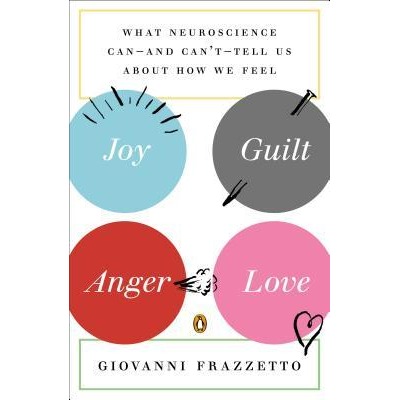
Joy, Guilt, Anger, Love
What Neuroscience Can—and Can't—Tell Us About How We Feel
آنچه علم اعصاب میتواند و نمیتواند در مورد نحوه احساس ما به ما بگوید
کتاب های مرتبط
- اطلاعات
- نقد و بررسی
- دیدگاه کاربران
نقد و بررسی

December 2, 2013
Neuroscientist Frazzetto (How We Feel) takes a remarkable look at the power of human emotion and the overuse of science in justifying human nature. It is, as he states, “an irresistible notion,” but Frazzetto’s treatise on the role our brains play in everyday emotions is a refreshing take on the idea. Interweaving psychological and scientific experiments with endearing personal anecdotes and historical retellings, Frazzetto shows that we are, indeed, more than the sum of our brain scans. While his knowledge of case studies is impressive, it’s his own dealings with strong emotions like grief and love that make the book appealing. The eponymous emotions impact our quotidian experiences, and Frazzetto explores them beyond the laboratory, sharing the stories and experiences of such figures as Darwin, Freud, Brecht, and Caravaggio, as well as how their own intimate relationships with these emotions can now be analyzed through neuroscience. Frazzetto has produced an homage to the history and of mankind’s devotion to flights of the heart and sparks of the brain. Agent: Carrie Kania, Conville & Walsh Literary Agency (U.K.)

January 15, 2014
A molecular biologist offers a meditation on the different ways in which we can know ourselves. "There is endless wonder in the images of neuroscience. Yet they do not cover the entire breadth of an emotion," writes Frazzetto, a founding member of the European Neuroscience and Society Network. He probes how we can combine the "incredible amount of information about the brain at our disposal" with our own intimate knowledge of our feelings. The author cites Darwin's seminal research on emotions expressed by animals and the cross-cultural universality of the human expression of emotions. "Feeling is emotion which has been rendered conscious," he writes. "Although emotions develop as biological processes, they culminate as personal mental experiences." Frazzetto finds fault with the current overemphasis on genetic determinism at the expense of ameliorative social and environmental determinants. Similarly, he suggests that emotional responses tested in a laboratory miss the essential social cues that determine our real-life responses to specific situations. "When your emotions are being measured inside a scanner you are often asked to perform distinct tasks [that are]...convenient substitutes for authentic fragments of life," he writes. The author offers a stringent criticism of the marketing of pharmaceuticals to treat depression as "an economic success [that] is not matched by improvements in the population's overall mental health," and he relates his own experiences of grief as a way to keep the deceased alive in memory. In the last sections of this intriguing book, Frazzetto references measurable vocalizations of pleasure heard when adolescent rats play and his own euphoric experiences of falling in love and composing a sonnet. As might be expected, he is critical of online dating, which "substitutes calculation for intuition." An enjoyable illumination of "that most private and shadowy territory, our emotions."
COPYRIGHT(2014) Kirkus Reviews, ALL RIGHTS RESERVED.

























دیدگاه کاربران